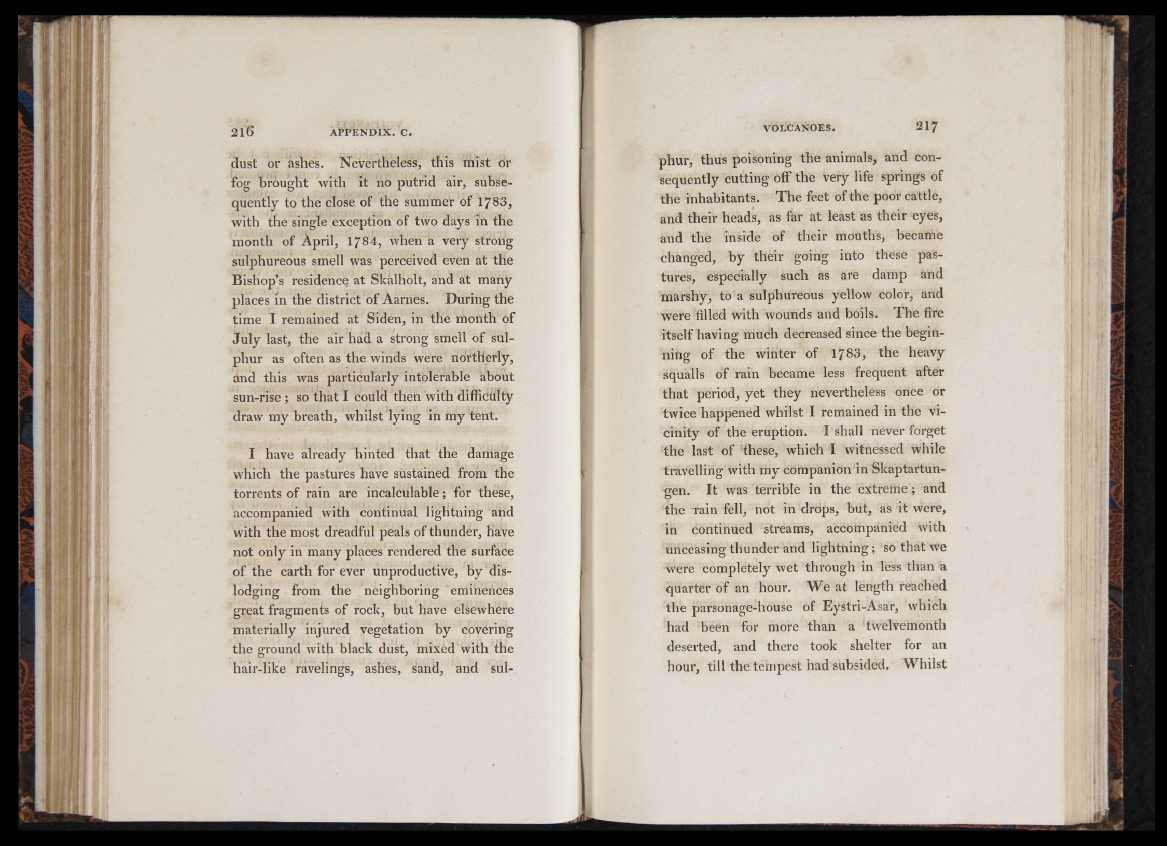
dust or ashes. Nevertheless, this mist or
fog brought with it no putrid air, subsequently
to the close of the summer of 1783,
with the single exception of two days m the
month of April, 1784, when a very strong
sulphureous smell was perceived even at the
Bishop’s residence at Skalholt, and at many
places in the district of Aarnes. During the
time I remained at Siden, in the month of
July last, the air had a strong smell of sulphur
as often as the winds were northerly,
and this was particularly intolerable about
sun-rise ; so that I could then with difficulty
draw my breath, whilst lying in my tent.
I have already hinted that the damage
which the pastures have sustained from the
torrents of rain are incalculable; for these,
accompanied with continual lightning ahd
with the most dreadful peals of thunder, have
not only in many places rendered the surface
of the earth for ever unproductive, by dislodging
from the neighboring eminences
great fragments of rock, but have elsewhere
materially injured vegetation by covering
the ground with black dust, mixed with the
hair-like ravelings, ashes, sand, and sulphur,
thus poisoning the animals, and consequently
cutting off the very life springs of
the inhabitants. The feet of the poor cattle,
and their heads, as far at least as their eyes,
and the inside of their mouths, became
changed, by their going into these pastures,
especially such as are damp and
marshy, to a sulphureous yellow color, and
were filled with wounds and boils. The fire
itself having much decreased since the beginning
of the winter of 1783, the heavy
squalls of rain became less frequent after
that period, yet they nevertheless once or
twice happened whilst I remained in the vicinity
of the eruption. I shall never forget
the last of lthese, which I witnessed while
travelling with my companion in Skaptartun-
gen. It was terrible in the extreme ; and
the rain fell, not in drops, but, as it were,
in continued streams, accompanied with
unceasing thunder and lightning; so that we
were completely wet through in less than a
quarter of an hour. We at length reached
the parsonage-house of EyStri-Asar, which
had been for more than a twelvemonth
deserted, and there took shelter for an
hour, till the tempest had subsided. Whilst